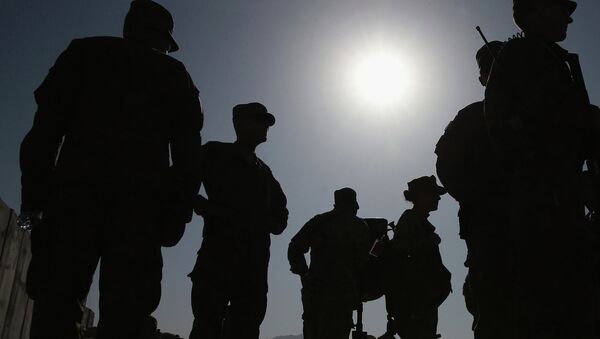"People are always shocked when they hear that we're deporting veterans from the United States and that people who grew up in the United States, whose family is in the United States and who served in the US military, often deployed to one or more wars, are being deported here to Mexico and some other countries," Gerry Condon, a Vietnam-era veteran and current national president of the Veterans for Peace group, told Sputnik Radio's Loud & Clear on Thursday.
"It's really an outrage."
Hector Lopez, director of the Unified US Deported Veterans, told host Brian Becker that he's been able to identify between 350 and 400 cases in which veterans have been deported from the US.
"Those are the only one we have been able to identify, but there's numbers going as high as 5,000 and there's numbers as even high as a 100,000," Lopez said, before noting that prior to deportation, veterans are asked by Homeland Security officials whether or not they've enlisted in the armed forces.
Lopez explained that there isn't an official number from the government "because if they count us then they would have to acknowledge the fact that they are deporting US military veterans."
Ann Wright, a retired US Army colonel and former US State Department official in Afghanistan who resigned in protest of the invasion of Iraq, added that veterans are getting the boot for minor offenses such as traffic violations, and that those small infractions completely erase the "years that these fine veterans have spent serving our country."
"It is part of a national dragnet to try to deport as many as persons as possible," she stressed, adding that the problem is exacerbated by the US military not pushing its servicemembers who are permanent residents to apply for their citizenship.
The spouses of veterans are also apparently fair game. Recently, Jose Gonzalez Carranza was booted from the US, forcing him to leave his 12-year-old daughter with relatives. He was married to US Army Pfc. Barbara Vieyra, who was killed while serving in Afghanistan in 2010. The pair married in 2007, three years after Carranza came as an undocumented migrant to the US from Veracruz, Mexico.
According to Task & Purpose, Carranza was permitted to stay in the US after his wife's death as a result of the US federal "parole in place" policy, which allows persons to remain stateside in one-year increments if they are the spouse, widow, widower, child or parent of a servicemember.
Without any clear indication as to why, the US Immigration and Customs Enforcement (ICE) agency ordered Carranza's deportation in December 2018. ICE officials showed up at Carranza's door last week before eventually shipping him off to Mexico.
Seven days after his pickup, his lawyer, Ezequiel Hernandez, received word that Carranza was going to be allowed to return to the US. After being transported from the US-Mexico border to detention facility in Tucson, Arizona, Carranza was released from custody in Phoenix.



